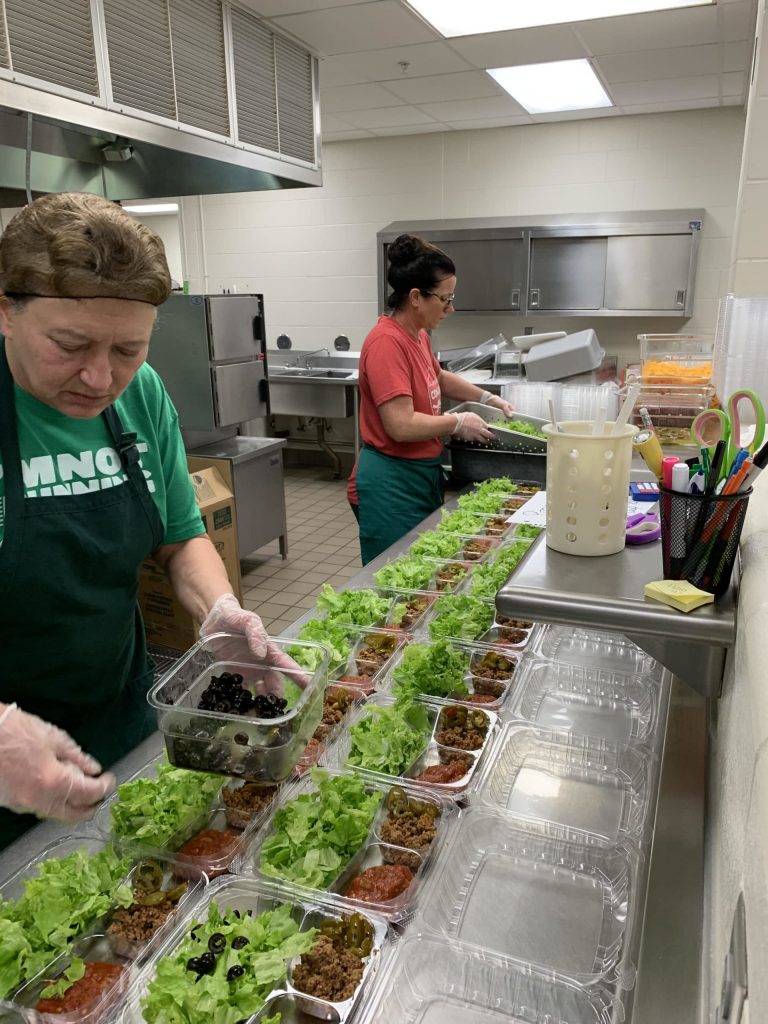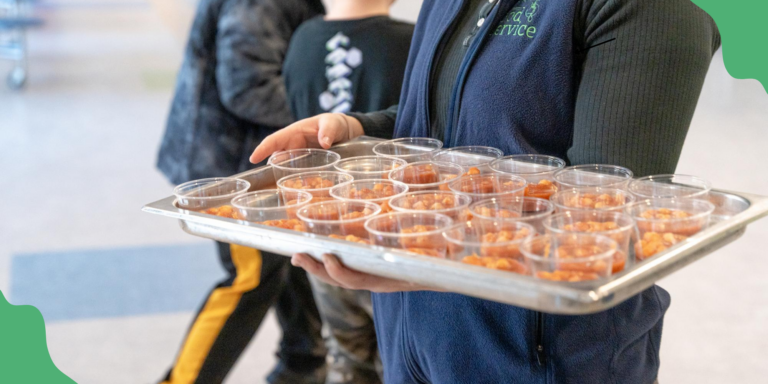What is the Coronavirus Aid, Relief, and Economic Security (CARES) Act?
The CARES Act provides additional relief for families and workers impacted by the public health and economic crisis resulting from the COVID-19 pandemic.
The CARES Act provides additional relief for families and workers impacted by the public health and economic crisis resulting from the COVID-19 pandemic.

You may have heard that Congress passed a new “stimulus package”—also known as the Coronavirus Aid, Relief, and Economic Security (CARES) Act—in light of COVID-19. What is the CARES Act, and how will it help communities nourish families and kids during this crisis? Here’s what you need to know.
It is the third round of emergency legislation passed by Congress in response to the COVID-19 pandemic. This $2.2 trillion bill—the largest economic relief package in U.S. history—provides additional relief for families and workers impacted by this public health and economic crisis. It also includes key investments to help mitigate the economic decline accelerated by widespread shutdowns of schools, businesses, and communities across the country.
This legislation is a step in the right direction to help families and local economies weather the storm. However, there are missed opportunities to make sure families and kids stay nourished. The effects of the pandemic will be felt the hardest among families who already struggle to make ends meet—for months to come. FoodCorps urges Congress to take additional actions.
No. Unfortunately, the CARES Act does not increase monthly benefits for the Supplemental Nutrition Assistance Program (SNAP)—one of the key relief measures FoodCorps and anti-hunger advocates have been urging Congress to enact. The bill does allocate additional funding for SNAP, but only to pay for the cost associated with the rise in the number of people qualifying to receive benefits, as well as measures authorized by Congress in the Families First Coronavirus Response Act.
By increasing SNAP benefits, Congress can ensure families have enough money to put food on the table while helping boost local economies. Join us in continuing to urge Congress to strengthen this critical safety net program.
Prolonged school closures are jeopardizing access to school meals for millions of kids, and school nutrition professionals nationwide are rising to the occasion to make sure no kids go hungry. However, we know that regulatory hurdles and insufficient safety guidelines are making it extremely difficult for schools to continue feeding kids.
While the CARES Act does not include any new provisions to address these challenges, Congress previously passed the Families First Coronavirus Response Act, which gave the USDA the authority to consider new flexibilities and waivers to ensure continued access to school meals during school closures. The USDA has taken a number of actions since the Families First bill passed to respond to the needs of schools, but more can still be done to support school nutrition heroes who, in many cases, are risking their own health to provide emergency meals to so many families and kids.
Yes! The CARES Act includes a few wins for national service—vital federal programs that provide the backbone of many nonprofit organizations supporting communities, including FoodCorps’ direct service program. While so many service members across the country are showing up for their communities and supporting COVID-19 emergency efforts, widespread closures of facilities and schools are disrupting operations for many national service programs, and service members are facing uncertainties.
The CARES Act includes important provisions that support national service during the COVID-19 pandemic—including making sure AmeriCorps service members whose service activities are disrupted can still earn the Education Award and other operational fixes.
FoodCorps applauds Congress for recognizing the significance of national service’s people power and the important roles service members play in communities, especially in a time of crisis.
But there is more Congress can do. The national service community is urging lawmakers to include additional policy changes in the next round of relief package—including tax relief for the Education Award.
The bill includes other critical provisions for responding to the COVID-19 pandemic, like much-needed support for health care workers, direct payments to families, expanded funding for unemployment insurance, housing assistance, and support for small businesses, schools, and nonprofit organizations. It also allocates additional funding to help support local producers who have lost direct market access as a result of the pandemic, including those who sell food to schools.
Yes! Congress is working on the fourth relief package. We will keep you posted with the latest news. Sign up for our action alerts to be the first to know when you can raise your voice.
Yes! As we have said before, your voice matters to your members of Congress. A simple email or phone call goes a long way in making changes for the better. Join us in continuing to urge Congress to do more to make sure families and kids stay nourished.
FoodCorps is a non-partisan, non-profit organization. FoodCorps staff and FoodCorps AmeriCorps members may not participate in any partisan or seemingly partisan activities during work time charged to a Corporation for National and Community Service funded grant or while earning AmeriCorps service hours. No federal funds were used to prepare or distribute these advocacy actions.

The Policy Brief: 2025 State Policy Updates

Alumni Spotlight: Cady Molloy, School District Executive Chef

6 Careers in Food That Make a Difference